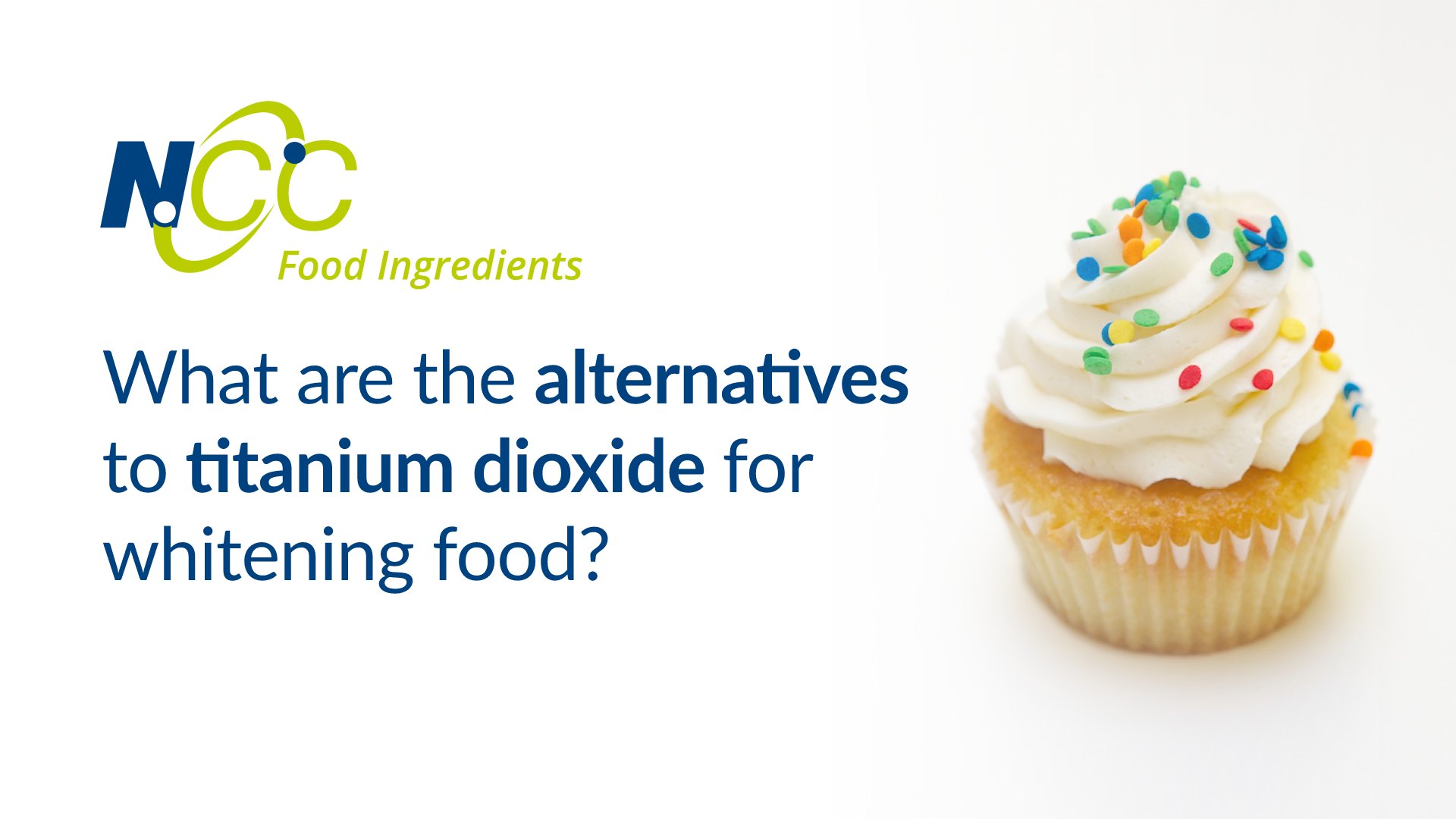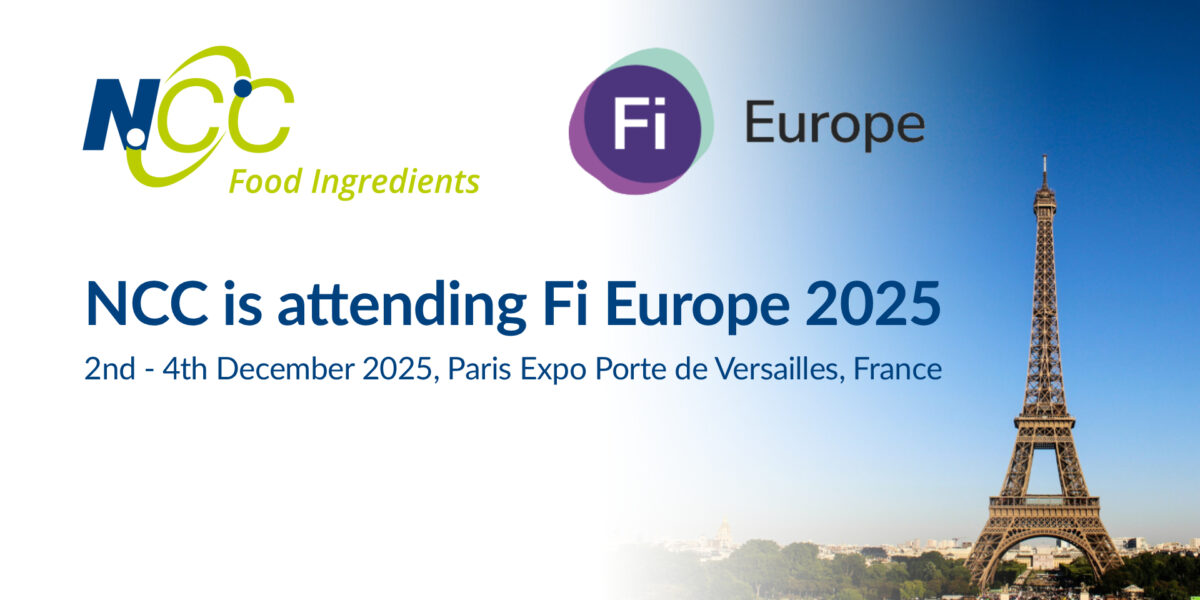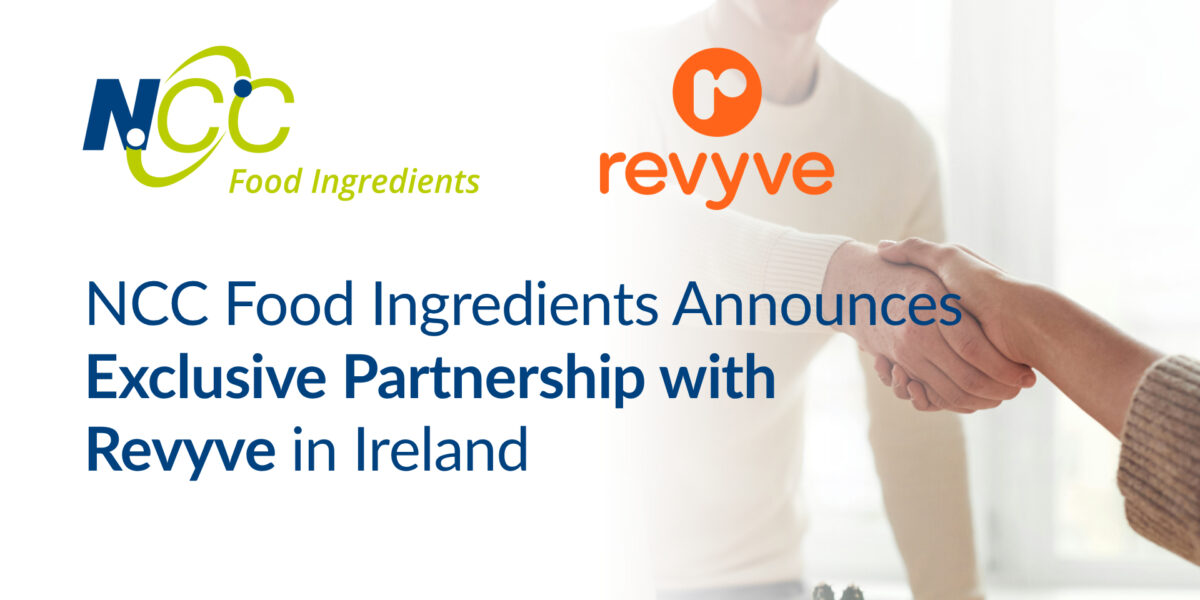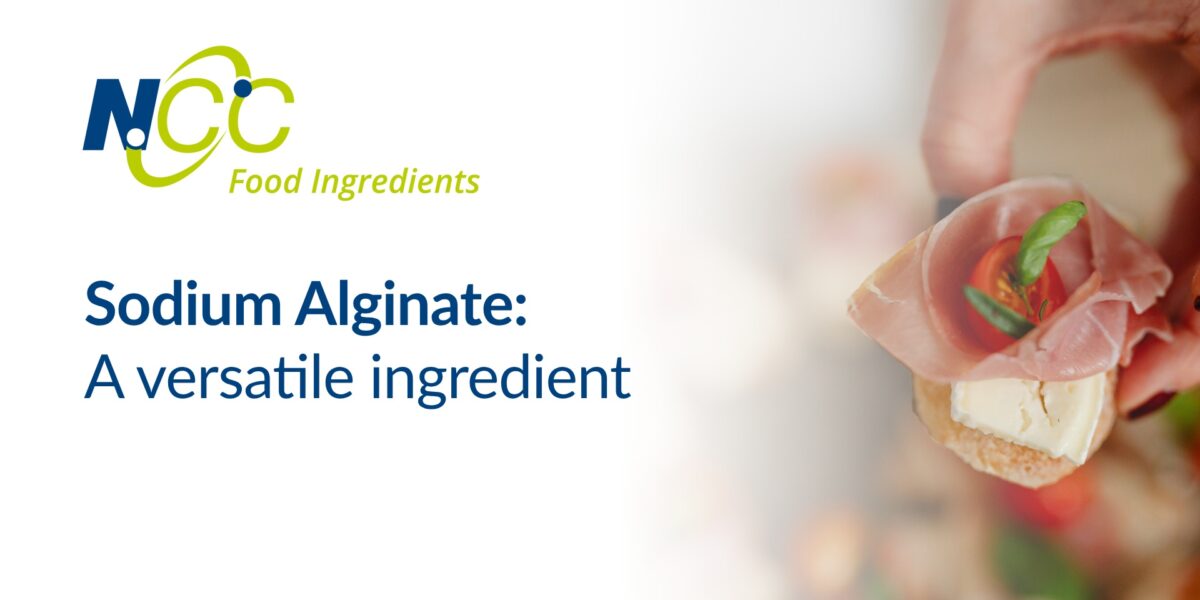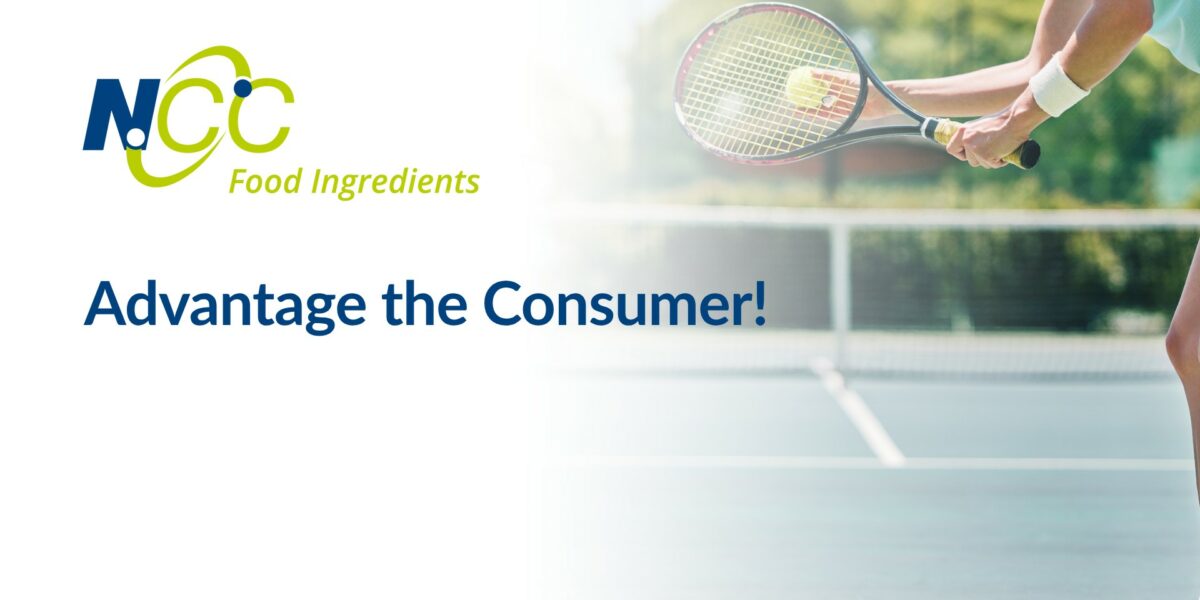Fintan McConnell, Product Manager, explores the alternatives to titanium dioxide.
The recent announcement by the EFSA (European Food Safety Authority) that titanium dioxide otherwise known as E171 is to be considered no longer safe as a food additive has meant that some food manufacturers will have to now find an alternative. Titanium dioxide has long been used as a food colouring to whiten or provide a cloudy effect, being included in food products such as chewing gum, sweets, sauces, as well as baked goods.
Titanium dioxide could be unsafe in food
The safety of titanium dioxide has been in question for several years. In 2016 the EFSA’s previous assessment highlighted that there were some gaps in their data that required further research. It was discovered, following thousands of studies as well as new scientific evidence on nanoparticles that the chemical could be unsafe for use in food.
Chair of EFSA’s expert Panel on Food Additives and Flavourings (FAF), Prof Maged Younes stated;
“Taking into account all available scientific studies and data, the Panel concluded that titanium dioxide can no longer be considered safe as a food additive. A critical element in reaching this conclusion is that we could not exclude genotoxicity concerns after consumption of titanium dioxide particles. After oral ingestion, the absorption of titanium dioxide particles is low, however they can accumulate in the body”.
Genotoxicity refers to a chemical being able to damage DNA, which in turn could lead to carcinogenic effects, however in the case of titanium dioxide this has not been totally proven. FAF Panel and chair of EFSA’s working group on E171 (titanium dioxide), Prof Matthew Wright stated;
“Although the evidence for general toxic effects was not conclusive, on the basis of the new data and strengthened methods we could not rule out a concern for genotoxicity and consequently we could not establish a safe level for daily intake of the food additive.”
What are the alternatives?
So, what are the alternatives to titanium dioxide? One approach is utilising rice starch, which is not only natural, meaning less E numbers in the ingredients list but it is also fairly inexpensive. However, it can retain moisture as well as thicken which may not be acceptable, especially when larger quantities of rice starch are needed, typically 5% of the product volume as opposed to 0.5%-1% with titanium dioxide. Another option is calcium carbonate which aside from its whitening properties, provides calcium and has the benefit of strengthening. On the other hand, calcium carbonate can affect the consistency and texture of the final product which in confectionary products for example may not be desirable.
The best alternative in my opinion
Possibly the best alternative to titanium dioxide in my opinion is a product from Sensient called Avalanche™. A portfolio of simple starch and mineral based solutions, Avalanche™ has been specifically designed to replace titanium dioxide and can be used in virtually any pH system and application. Unlike titanium dioxide, which was more of a one fit all approach, the right Avalanche™ solution largely depends on the type of product it will be used in. Meaning that it is specifically formulated to work with your product. The major benefits that Avalanche™ brings to the table is that it is clean label, is highly stable, has a great mouth feel and provides fantastic whitening properties. Essentially it is the closest product on the market to titanium dioxide. If you would like to know more about the Avalanche™ portfolio of products see below.
Avalanche™ portfolio of products
Avalanche Fusion TM
Applications: Panned applications, baking, confection, dry grocery, pet food.
Advantages: Simple ingredient alternative to titanium dioxide, brilliant white shades, good heat, light, and pH stability. Certified Kosher and Halal.
Avalanche TM Xtra
Applications: Topical applications, baking, confection, dry grocery, pet food.
Advantages: Brighter, brilliant white shades, increased performance and efficiency at lower usage rates, enhanced stability without impact to flavour, texture, and viscosity, topical coating and frosting systems available, label-friendly and preservative-free. Certified Kosher and Halal.
Avalanche TM Xtra CS
Applications: Panned Applications.
Advantages: Brighter, brilliant white shades, smooth, consistent coating system, Increased performance and efficiency at lower usage rates, label-friendly and preservative-free. Certified Kosher and Halal.
Avalanche TM Ultra
Applications: Beverage, dairy, retort dry grocery, sauces and condiments, wet pet food.
Advantages: Opacity in mid-to-high water activity applications, maintains cloud and opacity in prepared dry mixes, sustained viscosity under retort processing, remains suspended after hydration for improved opacity, good heat, light, and pH stability, label-friendly. Certified Kosher and Halal.
Avalanche TM Mb
Applications: Beverage, confection, baking, dairy, dry grocery, wet pet food.
Advantages: Superior heat stability and improved acid stability, ultra fine versions available for better mouthfeel and overall taste profile, opacity in low to high water activity applications. Kosher and Halal suitable.
Can we help?
At NCC Food ingredients we work directly with food producers from reformulation right through to new product development. Regardless if you are seeking to replace titanium dioxide, sugar, salt or fat in your food products, then we can assist. We have the experience and expertise to provide guidance when it comes to getting your product consumer ready.
NCC Food ingredients are an award-winning sourcing provider of functional and innovative ingredients. We recently won Ingredients Supplier of the Year. Our customer base ranges from international producers of foods and beverages to small niche artisan creators of fine foods. For further information fill out the form below and we’ll be in touch.

